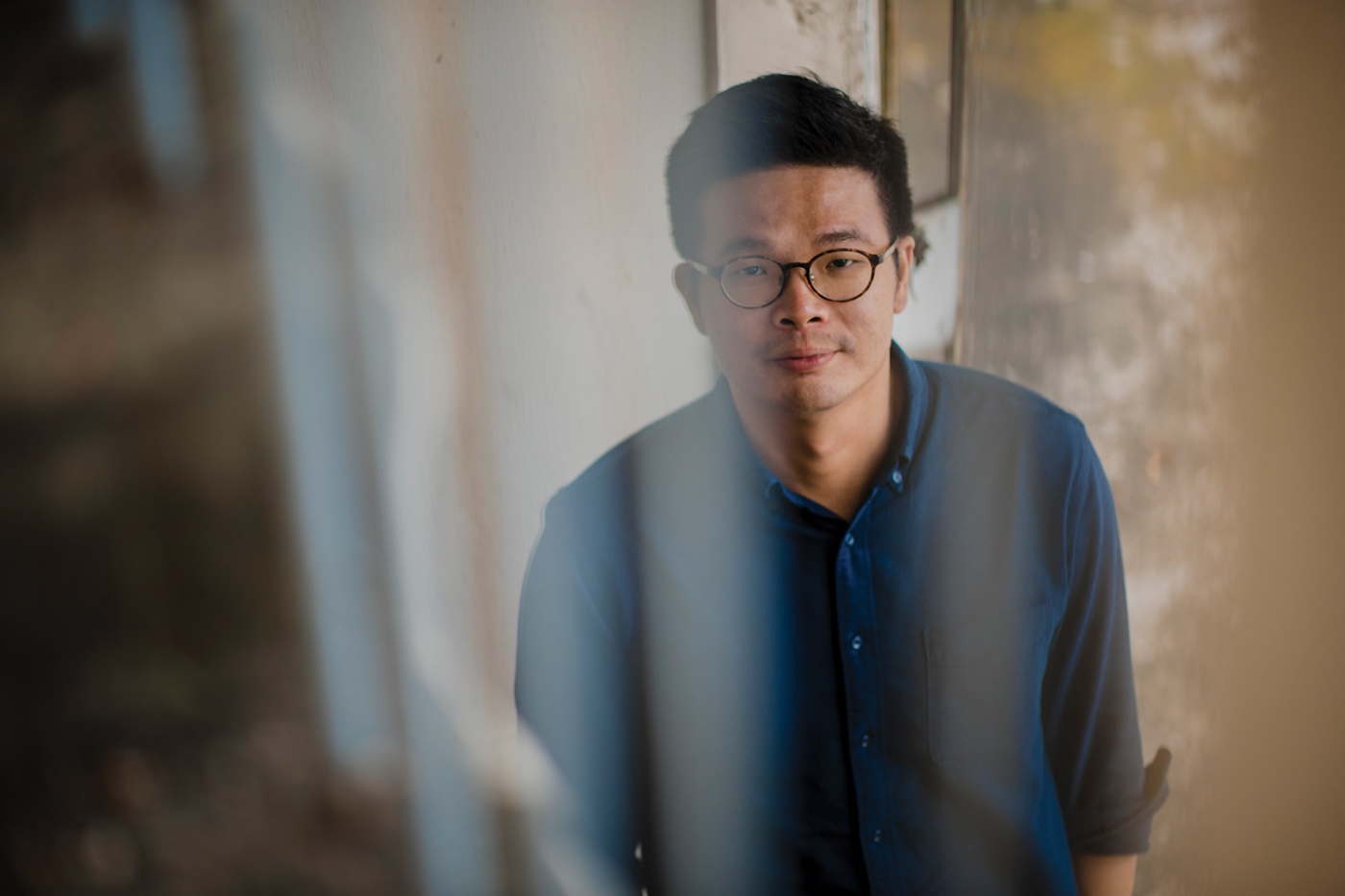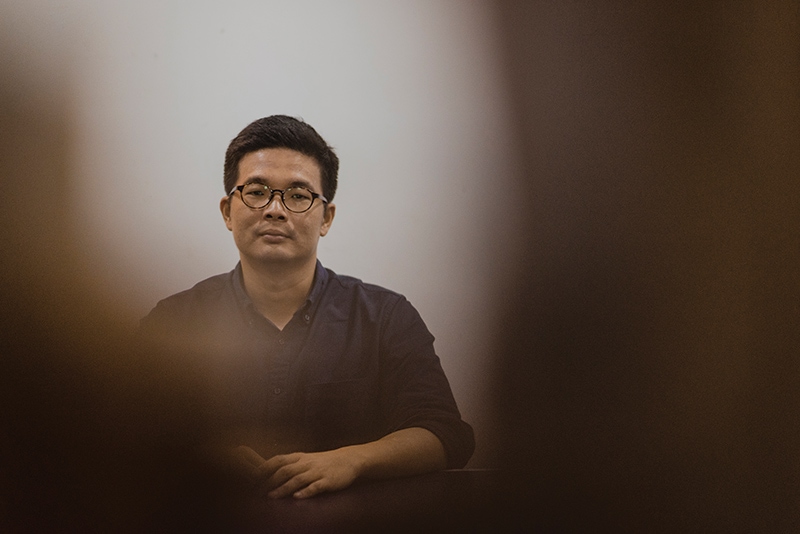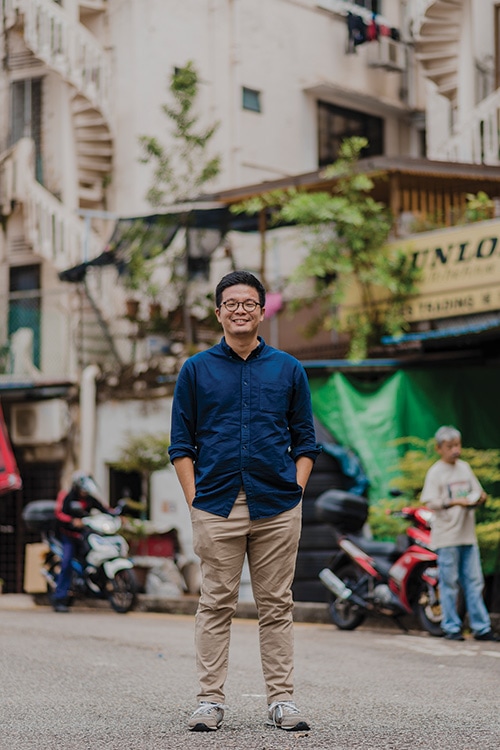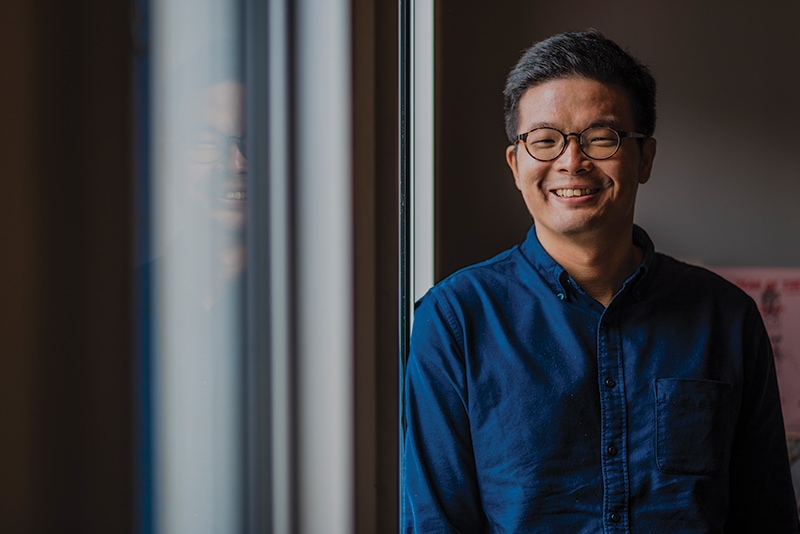Interview with Mark Tan: The Man Behind Rice Media
I spot Mark Tan as I’m reaching the Rice Media office, a second-storey walk-up in the Jalan Besar area. I call out his name, and stretch out my hand to introduce myself. Although I had worked as a contributor for Rice before, we never met in person. I’m here to interview him for a new series that looks into the minds of media owners, editors and executives. In a time when the lines between journalism, storytelling, and content are increasingly blurry, when anyone with an Internet connection is handed more options than they can pick, how does media remain relevant? Are there underlying values that draw people in, regardless of form?
In the span of three short years, through a brazenly sharp focus on Singapore society, Rice has grown to amass 500,000 unique visitors a month. Mark, the founder and CEO, seems like a fitting person to start directing these questions to. He leads me up the stairs, where the team is huddled around a few desks, sandwiched between the design studio Somewhere Else and UI/UX studio Convey. It is an economical set-up that mirrors any start-up of today.
“We’re going to move office soon. I don’t even have a desk right now!” Mark starts laughing. The ten-person team has been growing steadily on all fronts, from videographers to writers, to business development. Mark is currently the only person working on that last front, developing relationships with clients to expand Rice’s “brand” and “content”, words that are used again and again throughout the interview.
A lot of their expansion falls under Mark, who is, I learn, simultaneously effusive and critical. He’s a man with big ideas and a strong business acumen—qualities that make him well-suited for the ever-changing media landscape.
Before we delve into the interview proper, he shares with me how he used to be a lawyer and was working for his family business (AllScript, a magazine distribution company) on the side. “I was a lawyer for 3 to 4 years. I decided to quit and about a year later, I started Rice.”
So why did you quit law?
Basically, I think I was a competent lawyer but deep down, I felt that I wasn’t cut out for it. Maybe because I’m not a meticulous person. [laughs] If you need someone to think critically and approach arguments and cases I can do it. But when it comes down to the paperwork… I’ve always been worried someone’s gonna go bankrupt because of my mistake. I honestly would have gone on forever, but a personal tragedy happened in my life. It’s a little bit clichéd—usually for people to commit to a switch, there’s a push. Mine was because my younger brother passed away very suddenly.
When something like that happens to you, you realise that you’re not immortal, and you’re going to pass away at some point. So if you wanna do something, just do it now. That pushed me to quit law, but part of it was motivated by the fact… [pauses] For my parents to lose a child was so tough on them. I wanted to be closer to them and working in the family business was a good way to do that. I always had a passion for publishing, it’s in my genes.
What about your parents’ company now that you don’t work for them and your focus is on Rice?
The company is still alive and kicking. But I’ve got a cynical and pessimistic outlook towards the print industry. I think it’s dead. It’s not coming back in any way or form. Unless you’re looking at indie magazines as an extension of your brand or a passion project. But if it’s going be your bread and butter—it’s very tough. One area where print hasn’t lost its foothold is that, when something appears in print, it’s immediately more credible. It still hasn’t lost that weight. The reason for that is very practical. Before something goes into print, you need to take extra care to make sure that everything is copy-edited and proofread properly before you publish. Any mistake is permanent. I wouldn’t rule out Rice having print one day, but it will be part of a broader communications strategy.
Did you envision that Rice would be what it is today when you first started?
Kind of in a way, but the brand has evolved quite a bit. Having been surrounded by different kinds of magazines and content, I realised that if you look at Southeast Asia and Asia, a lot of stories told about our culture are led by a Western voice. For example, Vice ran a piece called Each Singaporean Home Has A Bomb Shelter. It is of no value to Singaporeans. But if you take that to the States, all of a sudden, bam, viral content. It’s always been this way. People come to mine our content and export it. I felt there wasn’t enough representation. It has to be localised but then at the same time, the content has got to be good enough and interesting enough to be recognised globally.
So when the West looks at Southeast Asia, it’s already a very culturally fragmented place. I’ve realised it’s impossible to have an Asian voice or an Eastern voice simply because people in Thailand are very different from people in Singapore. But within these communities, it is possible to have a local voice that creates content that could be globally relevant. So I would like to create content that is exportable from Asia to the West, and not the other way round. I would say it’s driven by passion but there’s also a commercial value involved. If you can crack the code…
Who do you think has cracked the code?
I think SCMP is doing a great job. They have very wisely capitalised on the fact that people in Singapore read SCMP and they’ve hired a lot of ex-ST people. Aside from them, I don’t know anyone who has cracked the code in this scenario.
I read that you had seed funding in 2017 to grow Rice across the region. Are you looking to raise more this year?
At the start, we were thinking of working with network contributors across Asia. But we quickly realised that for us to do it properly, we would need to actually have a local editor. There is just no way around it. You need someone to understand the nuances of the culture. You need enough content for you to make a mark. You can’t do one or two pieces from Bangkok or Indonesia. You need a hundred pieces from a certain country per month.
If you look at Vice, for example, they have Vice UK, Vice Australia, etc., to an extent it’s still local, but it’s not hyper-local. UK’s Scariest Debt Collector, I’m still consuming that even though it has no relevance to me simply because the content is good enough. There are a lot of stories we are tempted to write about, but probably will avoid. For example, if we wanted to double our audience immediately we need to expand the scope of our content. Some guy getting punched in the MRT—there’s that local Stomp category of content that we’re not touching at the moment. And it’s by design. We don’t intend to do it.
This year, we’re going to do another fundraise. We’re possibly looking to enter Thailand too. Just realistically speaking, dollars and cents: your FMCG companies require a regional footprint. The local market is still small. It doesn’t have critical mass for your Unilevers and P&Gs. Thailand is great because it gives you access to Burma, Laos. The level of Thai journalists and creatives is good and we pay maybe one quarter of the wages as compared to Singapore. So there’s every reason for me to set up there, and have the sales office headquartered in Singapore. There will be a lot of savings and from a business point of view, that’s very attractive.
There’s a lot of crazy shit happening in the border towns that I do wanna cover. We’ve been doing a lot of market research at the moment, and there’s a lot of networking to be done.
Have you always been a networking person?
Quite. I guess I’m extroverted… I need to do it. There’s no way we can move ahead without the right partners. For example, this might not the very popular thing to say, but I would never have thought that I would have partners in the Singapore government—which I do. I like to think that’s also very important for the brand. The way we position ourselves in Singapore. We are… as politically neutral as they come lah [laughs].
The way things are in the media scene can be a little boring. You have your anti-establishment media, they’ve all garnered an audience, because it’s all very easy to bash what the PAP is doing. Then you have your Straits Times and the Mediacorp publications. So it is undeniably an editorial challenge. Some things are important to us like inequality—both income and social. In order for us to add value to the conversation, we need to be critical of certain government policies. There’s just no way around it. It’s the same with LGBT issues. Invariably, you’re going to step on some toes to add value/perspective.
In my job, I have to convince our partners that when we do these things, it’s actually for the benefit of the audience and society in general. We are not trying to destabilise the country in any way. This is where the networking part comes in, because I need to sell this to them. It does become very challenging for our editorial, but the results have been good.
We’ve established quite a strong voice when it comes to social issues. I think we have enough latitude, like CNA’s documentary on inequality. You do get some of our sponsors calling us saying like, ay, you know… when that happens, it’s honestly a sales job. I need to sit down with them and say: yes, we’re critical of this but that doesn’t mean it affects our messaging or your agenda in any way. There might be overlap, but the goal here is to add value in terms of insight. We are not being critical for the sake of it. At the end of the day, there’s a takeaway.
What are some of your favourite articles?
I really like our features on the CNA Regardless of Class documentary. We ran a commentary on how you can’t actually have a documentary about inequality without examining the policies that led to it in the first place. I think that was a very strong point to make. Second of all, it didn’t end there. There’s a tendency for us to run an op-ed, present a perspective, then it ends there. What I was particularly happy about was how we followed up with a feature and interviewed the actual people in the documentary, which added a lot of perspective and insight. It wasn’t just our voice; we also got the participants.
The other one is one of the first features we published: Julian’s feature on Steven Lim. Stylistically, it was in line with my vision. If you notice, the thing about Rice is that we try our best to give a form of creative non-fiction. We’re very influenced by writers like Gay Talese… I’m a big fan of that kind of writing and I feel it’s not very present anymore. The feature was a lot about Steven, but it was also about Julian’s perspective on Steven. Granted that this style also has its detractors; you can’t verify whether that’s true or not, there’s a fiction element woven into reporting, which makes it interesting and compelling. I wouldn’t go as far as to call it true journalism, which is fine with me. At the end of the day, Rice is a subjective read.
One of the things I wanted to tackle when I started was objectivity in media. I think it is a false idol. Unless you’re fully subscription-based, every media has an agenda. Every media has a bias. The most important thing in any piece of work that we produce is a level of insight that is surprising. We want to astound people—that’s the bar we try to hit in every piece. To be insightful in a way that is unexpected. A way of looking at the world that you didn’t know existed.
Writing as a profession in Singapore is hard. You can take the ad route and be a copywriter but I mean as storytellers or journalists the options are very limited. I’m hoping that we can be a place for aspiring creatives who want to communicate in this form.
So you’re looking to hire more people?
We need more sales people and more staff writers. But I’ve been blessed to work with really talented creatives and writers like Grace Yeoh and Pan Jie—it’s not every day you get to work with colleagues of that calibre. Right now, we’re touching on certain content verticals as and when they become interesting. Public policy is a big area for us, but there aren’t enough warm bodies to stay on this beat. I’m also looking to get into lifestyle verticals in our own way. Under culture, entertainment is huge. We do review movies quite often. We do review plays. Art is something we write about as well. It was a concerted effort to make it less heavy. Consumer trends… how fashion is leveraging on social issues to sell things… but then it becomes heavy again. [laughs] Dating and relationships, that’s a huge thing. These verticals are important, so we need more talented writers. But because of our style, finding the writers isn’t easy. Creative non-fiction is not easy to do. You need to be like a journalist, but at the same time, you need to be like a fiction writer, like a writer writer. And generally, the two don’t meet. It’s usually one or the other; that’s what I’ve noticed.
Do you have competitors?
Of course. It would be very conceited to say I don’t have competitors. I think that we are a unique brand. But the media industry is very crowded—that’s always at the back of my mind. It’s not really about the amount of uniques you have. It’s about how you get these uniques. It’s a critical part of this business. The cyclist and lorry driver news: if we had broken that piece, we would have gotten a lot of views as well. But it doesn’t add any brand equity because that is something you could have done as well. There is no value-add, aside from the fact that you’re the fastest and the first.
On another level, there are people who can actually produce great content. To grow it that way is slower, but ultimately, it adds more value to the audience, as well as for brands. If our style of content is Stomp and we take whatever that’s viral, then how can we create value for a brand? We can’t. You need to do that for ad work. By design, we’ve made it this way so that our style is unique. But we have competitors and it keeps us on our toes. The media industry is very crowded and anyone can be a content producer.
Do you ever doubt yourself?
All the time. I doubt myself in terms of… when you do business, there’s always a risk. Every decision you make, there’s an opportunity cost. If we hire more people for video, maybe our editorial might suffer. There are many big media companies in the world that have suffered. BuzzFeed laid off a shit ton of people. These kinds of decisions have a lot of impact and there is definitely doubt.
I appreciate taking risks and have embraced the downsides of it too. Let’s just say if it doesn’t work out, can you accept it? If you can, then make a decision and move on. There’s a lot more responsibility now. I try not to think about it because it really stresses me out. When we started Rice, it was literally me and Julian. I’ve always seen Julian as a co-founder—we are like fire and ice.
You’re the fire, he’s the ice.
Exactly. I’m perfectly fine taking risks and exploring random concepts. He’s more operational, a cooler head, and the team respects him, which is great because he’s a good writer himself. As the team grows, you feel more responsible for more people. People start buying houses, getting married and all. In your head, you can’t let them down, but you don’t have to tell them about it. It’s part and parcel of being an entrepreneur.
What do you personally read when you want to be inspired?
I have a list of books that I want to read but I haven’t had the time. The Death of Truth by Michiko Kakutani and Post-Truth by Lee Mcintyre are just a few. I’m super inspired by Anthony Bourdain. His first piece that he submitted to The New Yorker was f**king great. This guy wasn’t really a writer, he was a chef, yet The New Yorker produced a three-thousand-word essay that he wrote. I’ve followed his work ever since. When he became a TV personality, he started going to places and telling them in his own voice, and that was his version of the truth. It was different from all the documentaries that I’ve seen.
It’s good to take a break from the industry when you want to be inspired. It’s very good to cultivate hobbies, but as you grow older it becomes a bit harder. I have quite an obsessive personality, so lately I’ve been into fishing. What people don’t appreciate in Singapore is that you can literally be in the heart of the jungle and back in the city in half an hour. Every time I need to take time off from work, I go into the jungle. Sometimes I go by myself to think about things.
Were there any difficult moments when you were building Rice and you had to take a moment to pivot or reflect?
At the start, we had a grand vision; we wanted to build a magazine about Asian culture, but we had no idea how to get there. We had an idea about the editorial tone and the stories we wanted to do, so we tried to push the boundaries and be as unfiltered as possible. It worked for a while. After six or seven months of content, people were like, these guys are really brash and say whatever they want—we got some hits because of that. However, during that period, I had to do some soul-searching because I realised that I wasn’t very happy about the content. We were being contrarian for the sake of it and there comes a point in every brand’s journey where to get to your goal, if you really want to be a representation of Asian culture, we needed to be more than just being unfiltered, which honestly added no value. I mean, you can be unfiltered but stupid, right [laughs].
We want to give astounding insights, which requires us to offer the smartest and most critical perspectives. And that’s hard. I think it’s a worthy ambition, more so than being unfiltered, which is what almost anybody with a keyboard can do.
What kinds of stories need to be told?
In terms of subject matter, and this is a personal thing for me, there needs to be a more open discussion and more stories on mental illness in Singapore. Mental illness and addiction. The kind of pieces we see online are either very sanitised government-sponsored messages or like, I had schizophrenia when I was 15, and now I’m okay. Within that, there are also very hard subjects like suicide, which I think is still super taboo and no one wants to talk about it.
[long pause] One of the important subjects that is going to come up this year—we’re all behind the curve is the whole post-truth thing. This is going to be the way things are for the foreseeable future and the idea that there isn’t a central authority for certain subjects. There are so many sources of information, but the idea that we have so many versions of the truth and it’s all true… is where it gets grey. For example, someone thinks Singapore is a meritocratic society, and if you ask me I will say yes, because I have benefited from the system. But if you ask someone else they may say something different. Two different answers to the same question. And they’re not wrong. I think that’s going to be problematic. The kind of content we see this year and over the next few years is going to be a recurrent theme. How publications deal with that will be super important. And how they also tackle fake news as a subject matter—no one is writing about it because everyone is waiting for the government media regulations to come out.
Do you know how you’re doing to deal with it?
I’m not sure. Last time there weren’t so many independent media sources. Maybe one of the key things for publications is to establish yourself as an authority in certain subject areas. People are looking for that. They are looking for a person who is an expert in this or that area and are going to trust what they say. We want to build more credibility and substantiate our insights, so that what we say is not based on a hunch.





